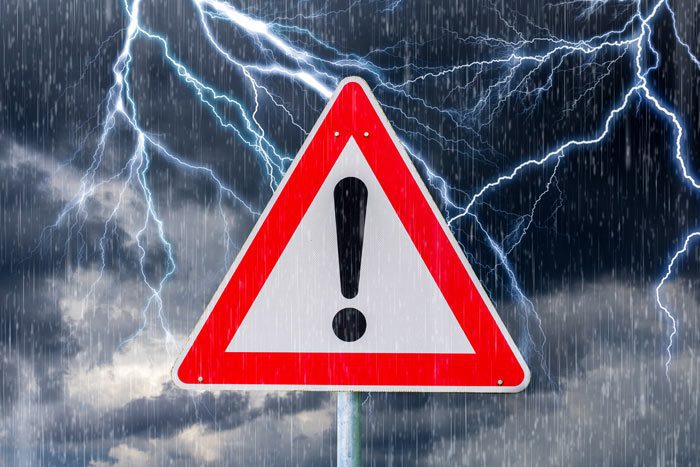4 Relapse Warning Signs to Watch Out For
Relapse Warning Signs
 Contrary to popular belief, relapse doesn’t happen overnight. It’s a slow process where a person starts to struggle emotionally and gradually slips back into old self-destructive behavior patterns. The act of using drugs or alcohol is simply the last step in a downward spiral.
Contrary to popular belief, relapse doesn’t happen overnight. It’s a slow process where a person starts to struggle emotionally and gradually slips back into old self-destructive behavior patterns. The act of using drugs or alcohol is simply the last step in a downward spiral.
Learning how to recognize the warning signs of a relapse can help you better monitor your recovery progress. If you can learn to identify the subtle signs that you’re starting to struggle, you can take action to put yourself on a different path before a full-blown relapse occurs.
1. Romanticizing Past Drug Use
This one is high on the list of relapse warning signs for a good reason. It’s dangerous when you start to forget why you’re in recovery and begin wistfully looking back at the time you spent partying with friends who encouraged your substance abuse. If you’re forgetting all the negative consequences you experienced as a result of your addiction and feeling like getting sober means you’re “missing out” on something fun, your recovery could be at risk.
To stop romanticizing past drug use, make a detailed list of things you’re grateful for in your sober life. Then, make a list of all of the negative consequences you experienced due to your addiction—including health problems, relationship struggles, financial difficulties, career setbacks, and substance abuse related legal issues. Keep these lists someplace where you can refer to them often.
2. Believing There’s No Harm in Using “Just This Once”
The idea of using in moderation or being “California sober” has great appeal to people who are in the early stages of recovery because it makes them feel as though they don’t need to give up drugs or alcohol to start living fuller and more productive lives. Unfortunately, using “just this once” isn’t possible for the vast majority of people with an addiction. One drink or one pill turns into two or three—which quickly starts to veer down the path of a full-blown relapse.
The compulsion to use is an unavoidable part of what it means to have an addiction, which is why it’s important to have a variety of tools at your disposal to keep cravings at bay. Removing yourself from the environment that triggered your cravings, distracting yourself with a favorite activity, writing about your feelings in your journal, calling a trusted friend, or checking in with your sponsor are all good ways to cope with cravings. Urge surfing, a type of mindfulness technique, may also be beneficial.
3. Withdrawing from Social Contact
Having a strong sober support network is an essential part of maintaining a lasting recovery. If you start ignoring calls or texts and find yourself making excuses to spend more time alone, you could be putting your recovery at risk.
You don’t need to spend every waking moment with other people, but humans are programmed to need some level of social connection for their mental wellbeing. Too much time alone provides the perfect opportunity for your thoughts to start to slip back into self-destructive patterns. If you’re starting to isolate yourself, you need to make a point of scheduling check-ins with people you trust. Now might also be a time to start attending a few extra 12-Step meetings.
4. Losing Interest in Hobbies & Activities
People in recovery are encouraged to find hobbies or activities they enjoy as a way to alleviate boredom and cope with stress. If you suddenly stop enjoying painting, creative writing, gardening, or playing your guitar, this could be a warning sign of an impending relapse.
A sudden lack of interest in things that were once a sign of pleasure is often an indicator of depression, which is common among people in recovery and greatly increases the risk of a relapse. Speaking to a counselor about how you’re struggling can help you find a way to get back on track. It might also be necessary to consider antidepressant medication or adjust the dose of medication you’re already taking.
Let Us Help You Work Towards a Lasting Recovery
While you should certainly take every measure possible to recognize warning signs and avoid a relapse, experiencing this type of setback doesn’t mean a lasting recovery isn’t within reach. A relapse doesn’t mean you’re not committed to your recovery or that you lack the willpower to be successful. As a chronic illness, addiction is often defined by periods of relapse that indicate one or more elements of a person’s treatment program must be adjusted. Think of a relapse as a setback that you must work to overcome.
At Waypoint Recovery Center, we are committed to helping all of our clients find a way to build a life free from the burden of addiction. If you’re worried about a possible relapse or you’ve recently experienced a relapse and need help getting back on track, the caring and compassionate staff members at our South Carolina residential addiction treatment facility can help you determine your next steps.




